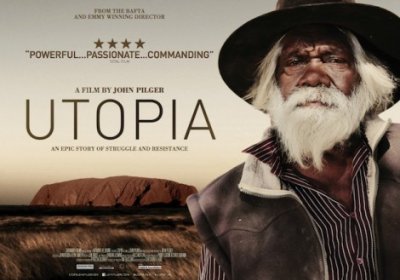Now the centenary of 1914 has got going, we should do as British education secretary Michael Gove suggests and celebrate the First World War, instead of taking notice of “left-wing academics”, who complain it was a regrettable waste of life.
But the other day, on the radio, they played an interview with Harry Patch, the last man alive who fought for the British in the war. Harry said: “Politicians who took us to war should have been given the guns and told to settle their differences themselves, instead of organising nothing better than legalised mass murder.”
993
For decade, the People’s Party (PP) of Spanish Prime Minister Mariano Rajoy has believed it had a reliable political gun in its holster ― unbending opposition to any group or proposal that could be portrayed as linked to Basque Homeland and Freedom (ETA).
ETA is the left-nationalist armed group responsible for more than 800 deaths in its 50-year-long fight against the Spanish state.
Hundreds of protesters held a peaceful vigil outside Tottenham police station on January 11 demanding justice for Mark Duggan, who was shot dead by police in August 2011. The killing sparked nationwide rioting.
More than 500 demonstrators gathered to protest against the “perverse” inquest decision last week that found police had lawfully killed Duggan when they shot him dead.
Relatives of Duggan, including his mother Pamela, aunt Carole and brother Marlon, joined the vigil, which observed a minute's silence.
Utopia
Directed by John Pilger
http://utopiajohnpilger.co.uk
The latest documentary by Emmy and BAFTA award winning film maker and journalist, John Pilger, contrasts two very different worlds: one of white aspiration on Sydney’s northern beaches, and the other the Aboriginal community in the ironically named town of Utopia, located in central Australia.
The town has been assessed as the most disadvantaged and poorest community in Australia. The distinction could not be more stark.
Residents in the urban poor settlement of San Dionisio in Barangay Cupang, Muntinlupa in Metro Manila, were woken on January 15 by a heavily armed police SWAT team.
Brandishing a local government order that referred to an address in a different barangay (neighbourhood), authorities overrode objections of residents and started tearing down their homes.
The Chilean Supreme Court issued a request on January 15 that the Australian government extradite a former agent of dictator Augusto Pinochet’s notorious secret police back to Chile to face charges of kidnapping and forced disappearances.
The move comes after the revelation made public last September by SBS journalist Florencia Melgar that former National Intelligence Directorate (DINA) agent Adriana Rivas had been in Australia since 2010, despite bail conditions imposed following Rivas’s 2006 arrest prohibiting her from leaving Chile.
Kevin Anderson, professor of energy and climate change at Manchester University, said on October 29 last year: “Today, after two decades of bluff and lies, the remaining 2°C budget demands revolutionary change to the political and economic hegemony.”
Anderson is one of Britain’s most eminent climate scientists. He is also deputy director of the Tyndall Centre for Climate Change Research.
Tyndall Centre senior research fellow and Manchester University reader Alice Bows-Larkin was more blunt in a November interview: “We need bottom-up and top-down action. We need change at all levels.”
Queensland Premier Campbell Newman recently hinted that his government’s controversial bikie laws were likely to be repealed after a mandatory review in three years. “Ultimately, in less than three years' time, these laws can disappear from the statute books in Queensland, because that's the intention of the government,” he said.
Newman claimed he never wanted the laws, saying: “I didn't particularly want to see these laws implemented, but the sooner we can get rid of them the better.”
A big attack on Medicare is on the cards after Prime Minister Tony Abbott refused to rule out forcing all patients to pay an upfront cost when they visit the doctor.
Former health advisor to Abbott, Terry Barnes, has written a paper to the federal government's Commission of Audit recommending a $6 upfront fee to see a doctor. The commission was appointed by the federal government to propose business-friendly cuts to government spending before the May budget.
The Socialist Alliance released this statement on January 16.
***
Aboriginal Australians have the oldest continuous cultures and languages in the world. The first peoples cared for country for thousands of years and have intimate knowledge of its unique environment.
Instead of helping to protect, learn from and collaborate with this knowledge, the Coalition government continues to endanger and destroy Aboriginal culture.
Every day at 5.30am, residents and supporters gather in the Collingwood area around Alexandra Parade to protest against test drilling for the government's proposed East-West Link tollway tunnel.
Keith Fitzgerald stands to lose the house he has lived in for 69 years if the tunnel is built. He told Green Left Weekly the protests are about more than just his home.
“They've got no right to take our heritage, our history, our parks and our clean air away from us. These are the vital things that we're fighting for and will continue to fight for.
On March 12 this year the 1000th issue of Green Left Weekly will be published. We will be marking this significant milestone in the pages of the paper and through events in cities across the country. Come along to help make sure that Australia's most-read progressive media project remains in good shape.
- Page 1
- Next page










